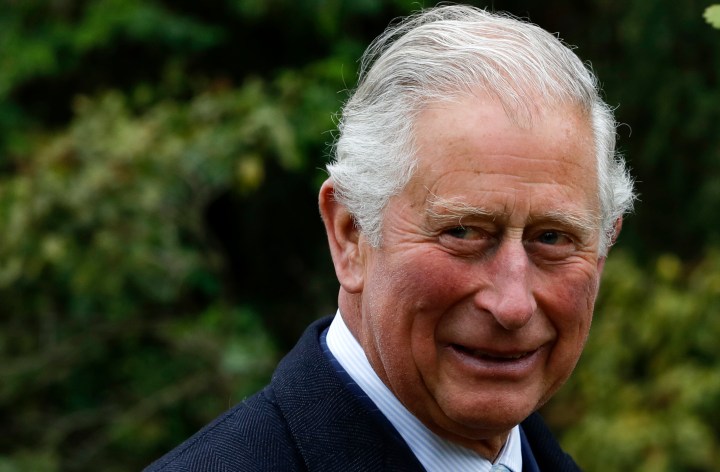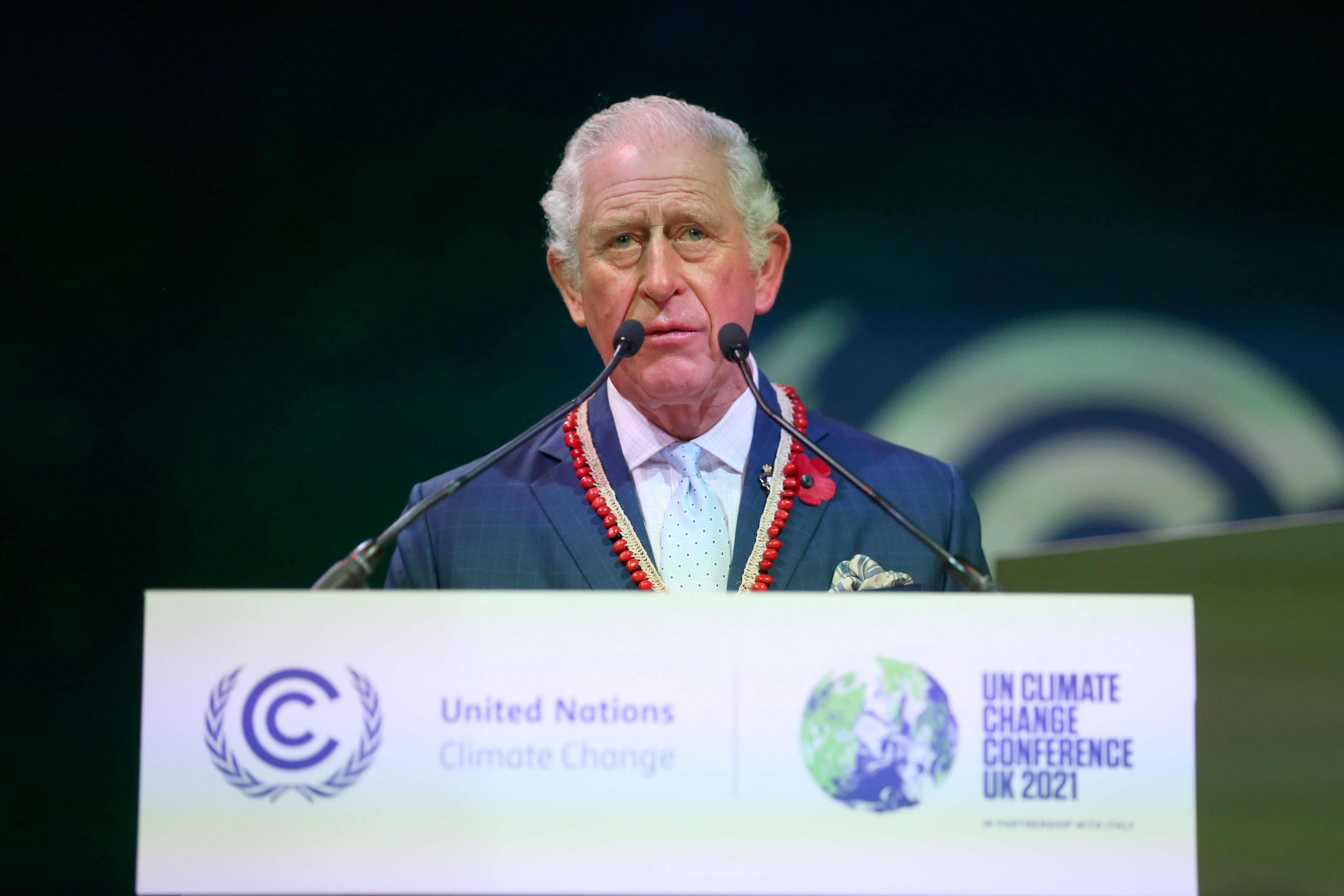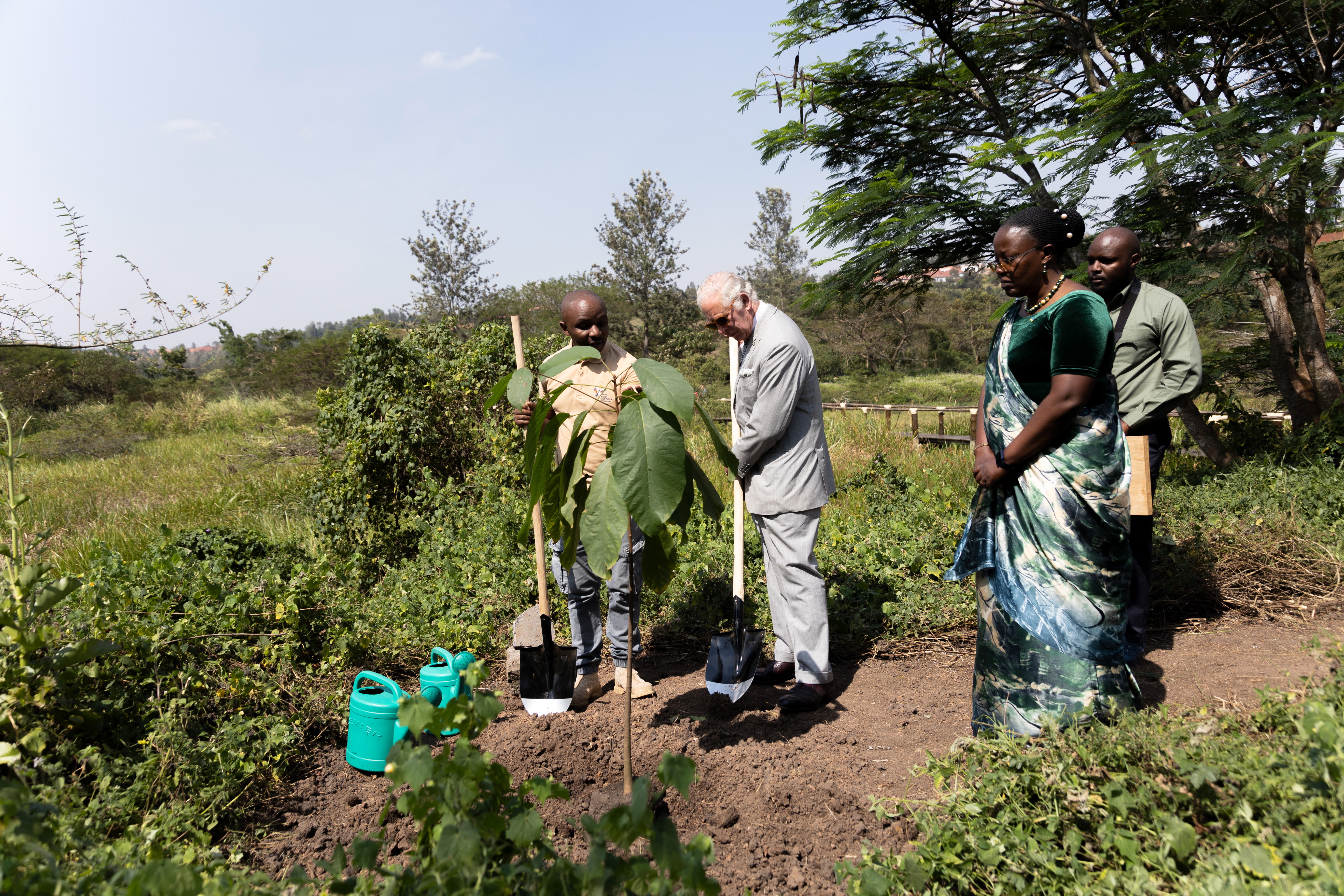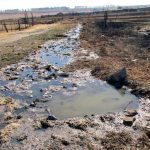KING CHARLES III
The planet is watching – what will King Charles’s reign mean for climate action?

LONDON, Sept 9 (Thomson Reuters Foundation) – As Britain's King Charles III begins his reign after the death of his mother, Queen Elizabeth II, environmental campaigners will be watching closely to see if he continues to advocate for climate action and is able to help drive change as monarch.
Charles has been one of the highest-profile global proponents for protecting the planet in recent decades, from writing books and making speeches about nature to working with business to mobilise private finance to combat global warming.
At the UN COP26 climate conference in Glasgow last year, Charles said the world needed a “war-like footing” to tackle the “existential threat” of climate change and biodiversity loss.
Britain’s new figurehead has called for governments to use incentives and regulations to encourage private-sector investment in climate action, and for the value of nature to be recognised on companies’ balance sheets.
However, as king under a constitutional monarchy in Britain, Charles is expected to remain politically neutral.
The Thomson Reuters Foundation spoke to several experts about what that might mean for his climate advocacy.

King Charles II, then Prince Charles, Prince of Wales, speaks during the Action on Forests and Land Use session at the UN Climate Change Conference (COP26) in Glasgow on 2 November 2021. (Photo: EPA-EFE / Robert Perry)
What did Charles do for the environment as Prince of Wales?
While heir to the throne, Charles was an active campaigner for the environment over more than five decades.
In 1970, aged 21, he gave his first major speech on the issue, warning of the dangerous effects of plastic pollution.
“He’s been talking about these issues for a long time, way before they became mainstream,” said Ed Matthew, campaigns director of think-tank E3G.
In this manner, Charles played a “vital diplomatic role” to raise awareness, Matthew added.
Along with speeches on the global stage, Charles has worked with actors from the public, private and non-profit sectors.
He established the International Sustainability Unit in 2010 to address challenges such as protecting rainforests and marine ecosystems, and last year launched a new charter of sustainable actions for companies to sign called “Terra Carta”.
“I have laboured for so many years to bring this issue to the forefront of international consciousness – not just with words, but with practical action,” said the then-prince in a speech in May in Yellowknife, Canada.
Back home, Matthew said Charles’ influence has been particularly valuable because – while being apolitical – he appeals to conservatives, in a similar vein to environmentalist David Attenborough, on an issue more often highlighted by the left.
“To make sure we go for really ambitious climate action in the UK, we need the conservative case for climate change to be made,” Matthew said.
During the race to become Britain’s next prime minister – won by Liz Truss – activists criticised the lack of attention paid to climate issues by the ruling Conservatives.
What are King Charles’ views on climate change?
Environmental campaigner Tony Juniper first met Charles in the early 1990s, and has worked with him on projects including the 2010 book “Harmony: A New Way of Looking at Our World”.
“I think he probably has been about the most effective environmentalist in history,” said Juniper, who chairs Natural England, the government’s advisory body for the environment.
He explained that a key idea Charles has advanced is the interconnection between humans and nature, expressed in depth in the book “Harmony”, which Juniper helped to write.
“One of the most important unique contributions that he’s brought is this holistic perspective … the need to keep all the different pieces of the jigsaw in view,” he said.

King Charles III, then Prince of Wales, and a tour guide plant a tree as Rwanda’s environment minister, Dr Jeanne d’Arc Mujawamariya (second from right), looks on in Umusambi Village, Kigali, on 24 June 2022. The British royal was in Rwanda for the 26th Commonwealth Heads of Government Meeting. (Photo: EPA-EFE / Eugene Uwimana)
In an interview in December 2020, Charles said humans are “a microcosm of the macrocosm” when it comes to nature.
“If we go on exploiting the way we are, whatever we do to nature – however much we pollute her – we do to ourselves. It is insanity,” he told the BBC.
However, Charles has been accused of hypocrisy due to his use of private jets and helicopters, whose planet-heating emissions are much higher than other forms of transport and significantly more per passenger than commercial flights.
During the 2021-22 financial year as Prince of Wales, he took regular private flights domestically, as shown by royal financial statements.
Will Charles be able to advocate for the climate as monarch?
While Queen Elizabeth II strictly guarded her personal views, Charles has faced criticism for expressing political opinions – and analysts say he will have to be more careful now.
In the view of the media, Elizabeth was “untouchable”, and it is “unknown territory” how they will react to King Charles, said Richard Black, a former BBC environment correspondent and founder of the non-profit Energy and Climate Intelligence Unit.
Black said Charles will be restricted by two main things: the pressures on his time due to the ceremonial duties of a king, and the likely scrutiny of his political neutrality.
This will make more hands-on work with businesses and in politics harder, but there are some environmental actions with little potential for controversy, he said.
For example, to mark Elizabeth’s 2022 Platinum Jubilee celebrations after 70 years on the throne, the Queen’s Green Canopy initiative was launched to encourage people to plant trees.
Black added that, in many ways, Charles has already done his bit in helping to build public awareness around climate and nature issues – which is now well-established.
“One thing you have to praise him for has been his courage and consistency,” he said.
“Whatever he does during his time as king, there’s no doubt in my view that he’s made quite a contribution already.”
How could Charles make a difference given the obstacles?
As king, Charles could have an even larger influence – whether through speeches and behind-the-scenes meetings with world leaders, or private audiences with the UK prime minister.
On a personal level, he could lead by example, such as with his efforts to make the royal household greener.
Charles has been tracking and publishing his carbon footprint since 2007, making several changes such as installing biomass boilers and solar panels at his homes and converting his Aston Martin to run on surplus wine and whey from cheese-making.
And to help avoid controversy, King Charles could pass some projects onto family members, with his son Prince William also expressing a keen interest in environmental issues.
How to execute the role of monarch is up to the individual, said Juniper, the environmental campaigner, so Charles might need some time to figure it out.
“As far as I know, there is no job description for king.” DM
Read more in Daily Maverick:
“Queen Elizabeth II dies – A 70-year-long reign that defined an era”
“Queen Elizabeth II’s royal legacy from the age of steam to the era of the smartphone”
“Death of Queen Elizabeth marked around world with tributes and flowers”
“Charles becomes King as the face of a nation changes”
“King Charles III – the life of a royal as he becomes King”
Originally published on: https://news.trust.org/item/20220909094629-dli0s
(Reporting by Jack Graham; Editing by Kieran Guilbert and Laurie Goering. Please credit the Thomson Reuters Foundation, the charitable arm of Thomson Reuters, that covers the lives of people around the world who struggle to live freely or fairly. Visit http://news.trust.org)





















“No job description for King”. For the income they get here in South Africa, It must surely come with great job satisfaction. Appraisal time and annual increases must be something to look forward to.